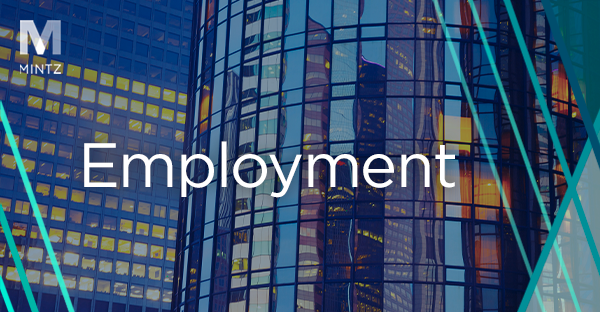NYC Employers Face New Obligations As City Council Changes Sick/Safe Leave and Pay Data Reporting Requirements
UPDATE: After this blog post was published, Mayor Adams vetoed the pay data reporting measures discussed below, thus sending the measures back to New York City Council to determine whether it would override the Mayor’s veto by a two-thirds majority vote and thus pass the measures into law. During the Council’s meeting on December 4, 2025, the Council voted to pass the measures into law, thereby overriding Mayor Adam’s veto.
New York City employers should heed two important new legislative developments coming out of City Council.
First, the City amended its Earned Sick and Safe Time Act (ESSTA) and its Temporary Schedule Change Act (“TSCA”) to establish a new unpaid leave requirement in addition to existing paid leave requirements and to expand the permissible uses for employee sick/safe leave (among other changes, as discussed below). These changes will take effect on February 22, 2026.
Second, City Council has also passed a new two-part measure that would require certain City employers to report demographic pay data to a designated City agency that would use such data to study citywide pay equity. These pay data reporting measures are currently pending before the Mayor – if the Mayor signs these measures or takes no action by November 7, 2025, these changes will pass into law.
We summarize below these new measures and what they mean for New York City employers.
ESSTA/TSCA Amendments
The recently enacted ESSTA/TSCA amendments expand City employers’ obligations to provide safe/sick time under the ESSTA in two primary ways: (1) by creating a new unpaid sick/safe time entitlement; and (2) by expanding the number of permissible uses for which employees may utilize sick/safe time.
Under existing law, City employers must provide 1 hour of paid safe/sick time for every 30 hours worked, up to a total of 40 or 56 hours per calendar year, depending on employer size. Such time can be used for a wide array of statutorily identified situations related to an employee’s (or their family member’s) medical care, illnesses, or conditions and/or where the employee (or their family member) requires statutorily identified services related to their safety and well-being. The TSCA also currently requires employers to grant eligible employees up to two “schedule changes” per year where employees appropriately request temporary changes to their schedule due to certain “personal events” (e.g., where the employee is caring for a minor child or individual with a disability).
Under the recently enacted ESSTA/TSCA amendments, City employers will soon be required to provide employees with at least 32 hours of unpaid sick/safe leave, to be immediately available on an employee’s date of hire (and thereafter on the first day of each calendar year), which must be provided in addition to existing paid sick/safe time requirements. Employers are not required to allow employees to carry this unpaid leave over into the following calendar year, though a new 32-hour unpaid allotment must be frontloaded at the start of each calendar year. This new unpaid leave entitlement will replace the TSCA’s current requirement that employers permit up to two annual temporary changes to an employee’s work schedule for personal events, though employers may still elect to grant such temporary scheduling requests, and though employers are still prohibited from retaliating against employees who make covered scheduling change requests.
This unpaid leave entitlement will be available for employees to use for all existing paid ESSTA purposes as well as the newly expanded ESSTA purposes detailed immediately below. While it is not immediately clear how this new unpaid leave requirement will interact with employers’ existing vacation/PTO policies (and whether such policies can be applied to satisfy this new unpaid leave requirement), we are hopeful that the City will issue clarifying guidance.
The new ESSTA amendments also expand the number of qualifying reasons an employee may use safe/sick time (whether paid or unpaid) to include the following instances:
When an employee needs to provide care to a minor child or care recipient;
When an employee is directed by a public official to remain indoors or avoid travel during a public disaster which would prevent an employee from reporting to work;
When an employee or their family member has been the victim of workplace violence;
When an employee needs to initiate, attend or prepare for a legal proceeding or hearing related to subsistence benefits or housing to which the employee, the employee’s family member, or the employee’s care recipient is a party; and
When an employee needs to take actions necessary to apply for, maintain, or restore subsistence benefits or shelter for the employee or their family member or care recipient.
The first bullet above represents a significant expansion of existing ESSTA entitlements. Previously, ESSTA would have permitted employees to take leave when a covered child/family member required care for specified medical-related or safety-related purposes. Now, employees appear to be permitted to use protected sick/safe leave time to provide more generalized caretaking/supervision to a minor child or “care recipient” (which the statute defines as a person with a disability, including a temporary disability, who is: (i) the caregiver’s family member or resides in their home, and (ii) relies on the caregiver for medical care or to meet the needs of daily living) even in the absence of specific medical or safety-related situations.
Commensurate with this expansion of permissible uses, the amendments also expand the reasons that an employer may require documentation related to a request for safe time.
Furthermore, to achieve alignment with existing New York State and City laws, the amendments add that employers are required to provide employees with 20 hours of paid prenatal leave during any 52-week calendar period. This prenatal personal time is a separate bank of paid leave in addition to the aforementioned banks of paid safe/sick time and unpaid safe/sick time. Pregnant employees may take prenatal personal leave to obtain healthcare services during or related to their pregnancy, including fertility treatment and end-of-pregnancy care. The time is not available to spouses or non-pregnant individuals and it need not be carried over or paid out. We previously discussed this development here.
Finally, the amendments clarify that the ESSTA’s requirements do not apply where an employee is covered by a collective bargaining agreement which provides for superior or comparable benefits in the form of paid or unpaid time off.
Pay Data Reporting Measures
If Mayor Adams approves of the City Council’s recently passed measures (or does not take action on those measures by November 7th), the NYC Administrative Code will be amended to require private employers with 200 or more employees working within New York City to submit a demographic pay data report to a designated City agency as part of the City’s efforts to understand potential pay disparities among the workforce. Once the designated City agency (in conjunction with other City commissions) collects the required data, the City would conduct a pay equity study aimed at assessing disparities in compensation based on gender and race/ethnicity.
Under these measures, the City would designate an agency responsible for collecting such data within a year of the measures’ enactment. Then, within a year after the agency is designated, the agency would develop a “standardized fillable form” for employers to use to submit information such as employees’ salaries and rates of pay, broken down by employees’ job titles, race/ethnicity, and sex. Within a year after the form is published, covered employers would be required to submit the pay report. Importantly, employers would be permitted to submit such reports anonymously provided the employer separately attests that they have submitted a pay data report and that the information submitted was accurate.
This measure would also adopt civil penalties for noncompliance. Employers who violate this law would be given a 30-day window to cure any violations before an initial penalty of $1,000 is imposed; any subsequent violations would incur a $5,000 penalty.
Assuming these measures are enacted, employers should understand whether they will be covered by these new requirements and then work to come into compliance. Many employers will already be equipped with some of the information needed to submit these reports, as private employers of 100+ employees (and federal contractors with 50+ employees) are currently required to submit employee data regarding race/ethnicity and sex as part of the annual EEO-1 process with the federal government. However, that EEO-1 process currently does not require submission of pay data broken down by demographic category. Other employers may already track this data as a best practice to ensure pay equity in the workforce or as part of a compliance effort with laws in other jurisdictions (for instance, California and Illinois now have pay data reporting requirements).
Next Steps for Employers
In light of these recent amendments, New York City employers should ensure they are complying with these changes by the February 22, 2026 effective date for the ESSTA/TSCA amendments (and otherwise when the City will require for the pay data reporting measures), including by taking the following actions with respect to New York City employees:
Reviewing and updating leave and temporary scheduling change policies to address the new unpaid leave requirement, the expanded qualifying reasons for taking leave, the paid prenatal leave requirements, and the modified temporary schedule change requirements;
Distributing revised policies to all employees in accordance with ESSTA requirements;
Distributing an updated Notice of Employee Rights to employees once the City publishes an updated notice, including by posting the notice in a conspicuous place and providing it to employees electronically;
Providing employees with appropriate information on the amount of paid and now unpaid safe/sick time the employee has available (and the amount of time used within the pay period) as well as complying with similar notification requirements when employees use paid prenatal leave;
Ensuring that the employer’s Human Resources team is accounting for new leave banks and effectuating changes to leave tracking systems;
Training Human Resources personnel and managers on the new leave requirements;
Retaining relevant records for a period of 3 years (including records that show employees’ total leave balances per pay period and any amounts used each pay period); and
Ensuring readiness to comply with any pay data reporting obligations if they go into effect, including confirming demographic pay data is available and whether such information will be submitted anonymously.
Mintz’s Employment Practice is available to assist New York City employers with any questions related to these legislative developments and to ensure compliance with these new changes.




